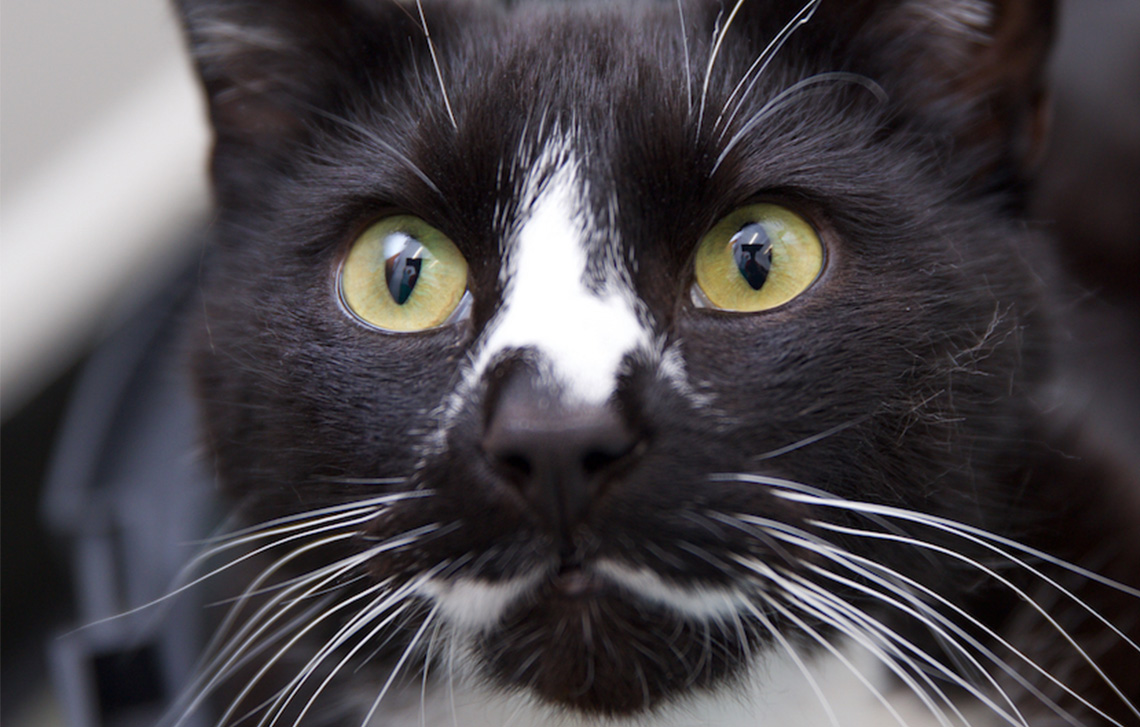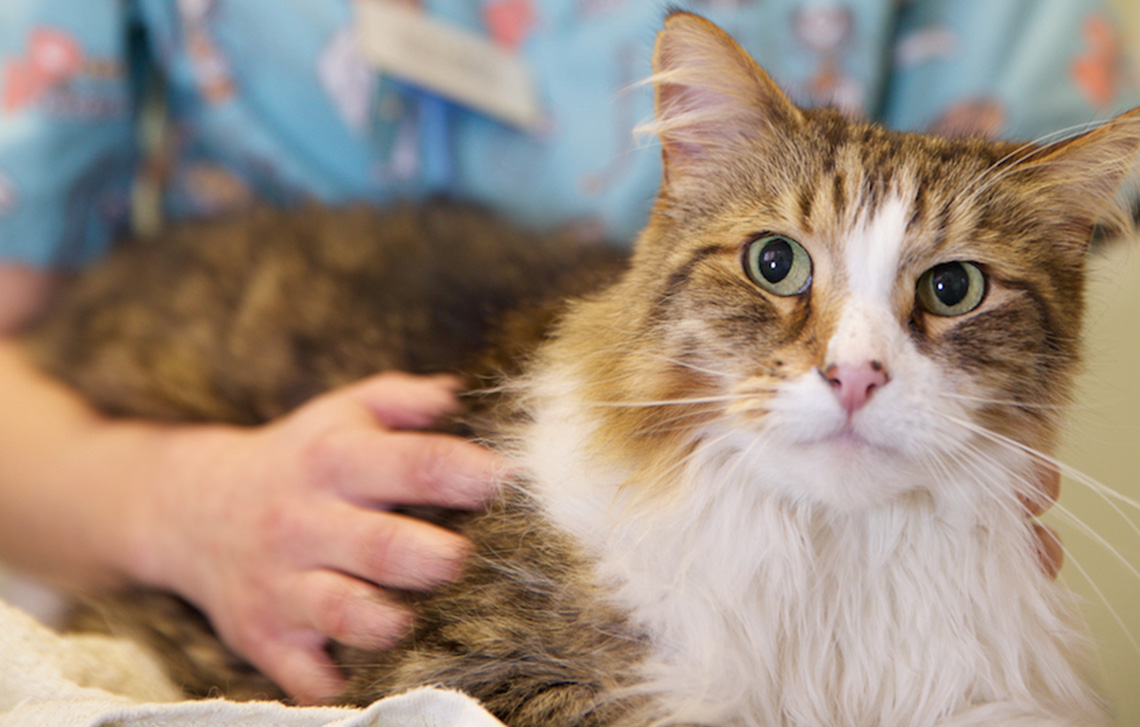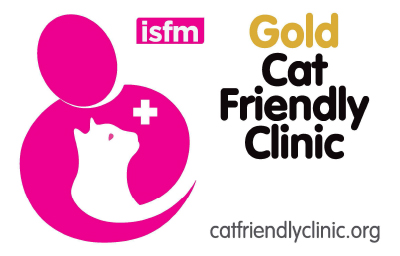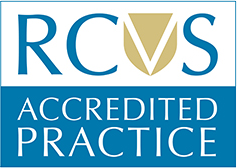Kitten Care - Looking After Your New Kitten
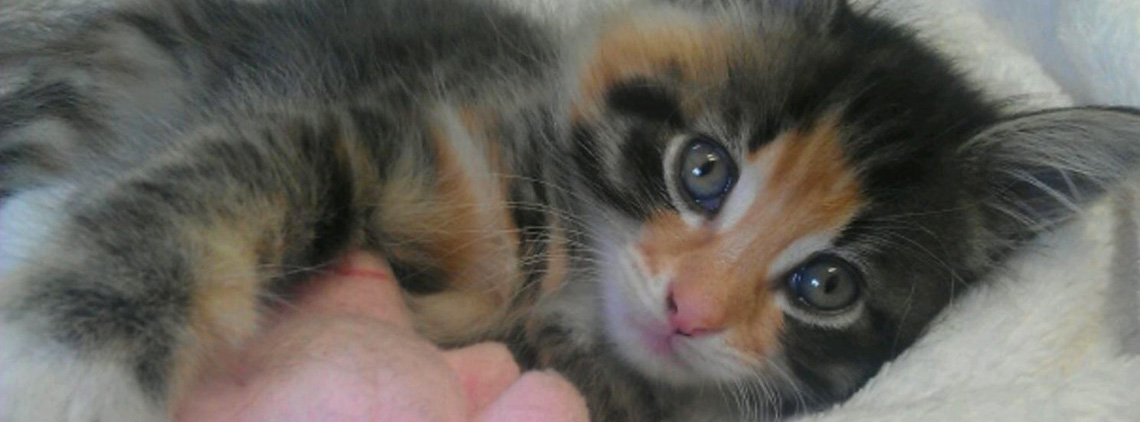
At Cat’s Whiskers, we understand that although getting a new kitten is an extremely exciting and fun time, equally looking after a new kitten can be stressful if you don’t know the best ways to keep them healthy and happy. This is why we have put together some essential kitten care advice to put your mind at rest.
A positive veterinary experience
We want to ensure you and your kitten have a long and happy life together. Therefore, having been faced with many terrified adult cats who hate going to the vets because of negative past experiences at multi-animal vets, we aim to make a kittens first visit to Cat’s Whiskers as relaxed and fun as possible, to ensure that they have a positive first experience. This will also make life easier for you as an owner, when you have to bring your kitten to the vets for subsequent visits.
We arrange a long appointment for the first visit – it is 30 minutes (three times longer than the standard vet appointment). The longer appointment time allows your kitten(s) to gain their confidence in the new environment before being handled and examined by the vet.
We examine your kitten in the bottom half of the carrier if possible or on his or her own blanket, the familiar smells provide reassurance. We also provide treats and toys to give your kitten a fun experience and to distract them from the necessary bad bits (we do use the smallest gauge needles available but a needle is still a needle!)
We also give you a kitten pack to take home full of useful information. It also has food samples of Royal Canin veterinary life stage diets, our recommended food for cats and the food that gets a very big vote of confidence from our own cats.
Vaccinations
Vaccinations are essential for all kittens, even indoor living kittens, to provide protection against potentially fatal infections. The first injection in the course is given at nine weeks or older and a second at about four to six weeks later. The kitten should be kept away from unvaccinated cats and stay indoors for 10 days after the second injection to ensure maximum protection. We do encourage you to keep your kitten indoors until after they have been micro chipped and neutered at four months old.
Neutering
Spaying in females and castration in males results in happier, healthier cats and prevents unwanted kittens being born. The optimum age for neutering kittens is now widely accepted as four months old. Young kittens bounce back much quicker than adult cats and often only need to spend a few hours with us for the procedure.
Feeding your kitten
When you first take a kitten home feed it on the same food it has been used to. A sudden change of diet combined with the stress of adapting to a new home can cause stomach upsets and diarrhoea. We recommend the Royal Canin veterinary life stage diets and we will provide you with samples and advice on how to change the diet gradually.
- Kittens have small stomachs and have to be fed little and often.
- Kittens aged 8-16 weeks – four meals a day of wet kitten food (ideally Royal Canin Weaning diet),
- Kittens four-six months – three meals (ideally Royal Canin Young neutered Adult diet)
- Kittens over six months old – two meals.
You may want to provide some dry food on an ad lib basis – this can work very well for growing kittens but can encourage over-eating in kittens over six months resulting in weight gain, we will monitor your kitten’s growth and weight and give you advice on feeding.
Do not give your kitten cow’s milk as it can cause diarrhoea. If you wish to feed milk use one that is specially formulated for cats. Fresh drinking water should be available at all times, water bowls should be placed away from food bowls to encourage a greater water intake, some kittens and cats prefer to drink out of a glass tumbler or water fountain rather than water bowl.
Parasites
Parasites cause serious illness in kittens and prevention is better than cure. Kittens need to be treated for worms from the time of weaning (usually four-six weeks old) and every two weeks until they are four months old, then every two-six months depending on lifestyle. Cats that hunt and eat rodents need deworming more frequently than cats that live indoors. We will design a parasite prevention plan for your kitten and review it every six months when they come in for a health check. Fleas are a problem all year round even in indoor living cats and we recommend monthly spot on treatment with a prescription product (because they are safe and they work!).
Toys and play – activities for your kitten
Kittens are very playful. Give them an assortment of toys to keep them occupied and exercised – these need not be expensive – every kitten loves a cardboard box to play in. Play is also a good way for you to get to know and trust each other. Provide your kitten with a scratching post.
Behavioural problems in kittens
One of the most common problems we see is new owners hands and arms covered in scratches and bites! It is normal for kittens to practise their hunting behaviour and while it may seem fun to wrestle with a little kitten, it isn’t as much fun when a large adult cat sinks their teeth into your hand because he wasn’t taught what behaviour was appropriate when he younger. Try to ignore the behaviour (rather than react to it as this can add to the excitement for the kitten and reinforce the behaviour) and offer a toy to play with instead Never shout at or punish your kitten – they won’t understand what you are saying and it could potentially leave them scared of you. If you are concerned about your kitten’s behaviour please don’t delay making an appointment with our vet Amanda to get things back on track as quickly as possible.
Toilet training
Most kittens will have learnt to use a litter tray by copying their mother. However you may just need to show your new kitten where the litter tray is and/or place it on the tray on waking up from a sleep and after meals. Use a plastic litter tray and use the same type of litter as the kitten is used to using, introduce a different type gradually. Place the tray in a quiet accessible corner where your kitten will not be disturbed. Make sure that the litter tray is not next to food and water bowls. The kitten may be reluctant to use the litter tray if it is too close to its food.
More information on cleaning soiled areas.
Safety
Kittens are very inquisitive and will enjoy investigating small, dark places which they can crawl into in your home. To keep your kitten safe you should:
- Shut the doors, on cupboards, wardrobes, washing machines, tumble dryers and garden sheds shut.
- Keep windows shut if you live above ground level
- Avoid having plants that are poisonous to cats in the house or garden; example Lilies (all parts of the plant),
- Poinsettia, Lily of the Valley, Christmas Cherry, Castor Oil plant, Avocado plant, rubber plant and ivy.
- Outdoors keep garden chemicals stored safely and take care if using slug bait or chemicals on the garden itself – some types can be very toxic to animals.
Microchips
A small chip about the size of a grain of rice is implanted under the skin by injection. The needle is bigger than our usual injection needles and we prefer to implant the microchips while the kittens are under anaesthetic at the time of neutering to prevent a vet / needle phobia developing! When scanned, the chip is read as a 15 digit number which is unique to your pet. The number along with your contact details are registered on a national database which means if your kitten or cat wanders off and gets lost or injured, there is a really good chance of you being reunited with them. Collars can be lost (or removed) and it is much harder to find, or prove ownership of, an unidentified pet.
Insurance for your kitten
Available through many providers at varying levels of cover. Unlike car insurance, it is not a good idea to change providers every year to get the cheapest premium as they will often exclude previous conditions leaving you to pay the bill. For around £15 a month you can have peace of mind if your kitten or cat gets injured or ill that you will be able to provide the best possible treatment and care. If you opt not to insure and expect the same level of care for your pets as you do for yourself, please bear in mind there is no NHS for pets and gold standard healthcare is expensive to provide. Referral to a specialist orthopaedic vet to repair fractures sustained in a road traffic accident can result in bills of £2000-5000.
Find out more about our Agria insurance here.
Membership Plans
Developed to help you provide the best possible care for your kitten and spread the cost over 12 months. Our Membership Plans are unique to Cat’s Whiskers Veterinary Clinic and contain much more than any other veterinary clinic pet plan we have seen and all of our plans are specifically tailored for age and lifestyle. All kittens will go onto one of our Junior plans, Junior Outdoor Adventurer if they will be going outside or Junior Indoor House Cat if they will be living an indoor life. Our Junior membership plans cover vaccinations and parasite treatments (as required by lifestyle and risk) and microchipping. In addition, you will have access to unlimited nurse clinics for weight and development checks, nail clips, grooming and behavioural advice.

